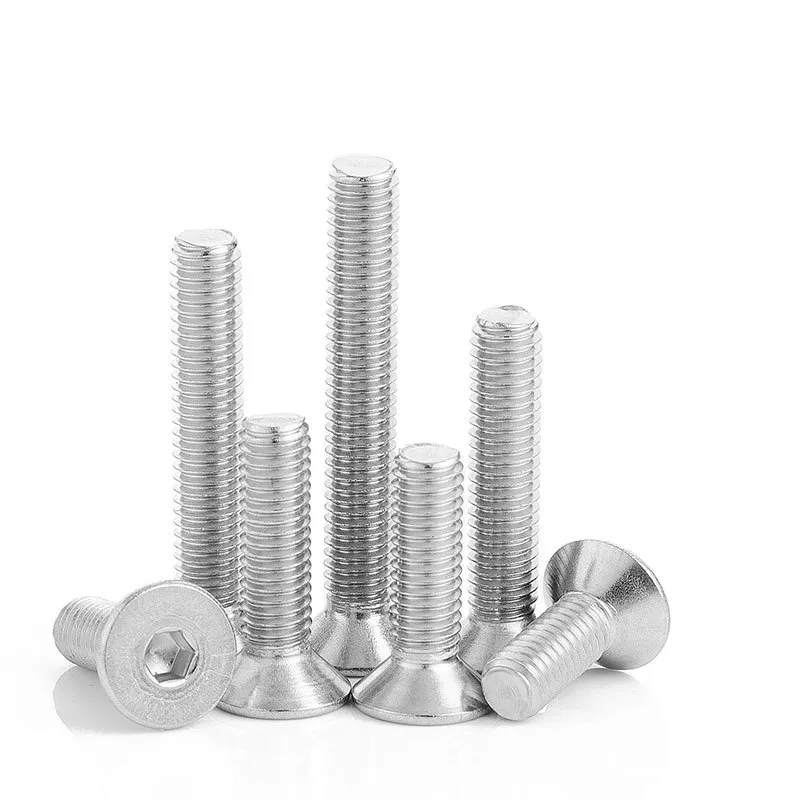

Thin Stainless Washers - High-Quality, Durable Fasteners
Aug . 29, 2024 11:03 Back to list
Thin Stainless Washers - High-Quality, Durable Fasteners
The Versatility of Thin Stainless Washers
In the realm of engineering and construction, the smallest components can often play a significant role in the overall functionality and durability of a project. One such component that may go unnoticed yet is crucial in various applications is the thin stainless washer. These washers, made from stainless steel, offer a blend of strength and flexibility, making them ideal for numerous uses in mechanical assembly, maintenance, and structural support.
Understanding Thin Stainless Washers
Thin stainless washers are circular plates with a hole in the center, designed to distribute the load of a threaded fastener, such as a nut or bolt. Their thin profile allows them to occupy minimal space while providing adequate support, reducing the risk of damage to surfaces during tightening. Made from stainless steel, these washers are resistant to corrosion, making them suitable for both indoor and outdoor applications. This characteristic is particularly vital in environments exposed to moisture, chemicals, and varying temperatures.
Applications Across Industries
The versatility of thin stainless washers makes them invaluable across multiple industries. In the automotive sector, they are commonly used to mitigate vibrations, secure components, and enhance overall durability. In construction, these washers play a role in bolting wooden beams, securing metal structures, and ensuring that fixtures remain tight and secure under heavy loads. They are also utilized in the manufacturing of appliances and equipment, where maintaining the integrity of joints and connections is paramount.
thin stainless washers

Furthermore, thin stainless washers are increasingly popular in the electronics industry, where their lightweight nature and resistance to electrical interference are beneficial. They are often used in circuit boards and various electrical enclosures, contributing to the safety and reliability of electronic devices.
Benefits of Using Thin Stainless Washers
One of the primary benefits of using thin stainless washers is their ability to prevent surface damage. When fasteners are tightened, the pressure applied can cause indentations or deformation on the surfaces being joined. Washers distribute this pressure more evenly, mitigating the risk of damage and prolonging the lifespan of both the fasteners and the materials involved.
Additionally, stainless steel's resistance to rust and corrosion means that these washers maintain their integrity over time, reducing maintenance costs and the need for replacements. They are an economical choice for industries that require long-lasting, reliable components.
Conclusion
In conclusion, thin stainless washers are an essential yet often overlooked component in a myriad of applications. Their strength, durability, and resistance to corrosion make them ideal for tasks requiring precision and reliability. As industries continue to evolve and seek efficient solutions, the significance of such small parts will only grow, highlighting the critical role they play in the overall success of construction and manufacturing projects. Whether in automotive assembly, construction, or electronics, thin stainless washers are a testament to the importance of every component in the engineering process.
Latest news
-
High-Strength Hot Dip Galvanized Bolts - Hebei Longze | Corrosion Resistance, Customization
NewsJul.30,2025
-
Hot Dip Galvanized Bolts-Hebei Longze|Corrosion Resistance&High Strength
NewsJul.30,2025
-
High-Strength Hot-Dip Galvanized Bolts-Hebei Longze|Corrosion Resistance&High Strength
NewsJul.30,2025
-
Hot Dip Galvanized Bolts-Hebei Longze|Corrosion Resistance&High Strength
NewsJul.30,2025
-
Hot Dip Galvanized Bolts - Hebei Longze | Corrosion Resistance, High Strength
NewsJul.30,2025
-
High-Strength Hot Dip Galvanized Bolts-Hebei Longze|Corrosion Resistance, Grade 8.8
NewsJul.30,2025

